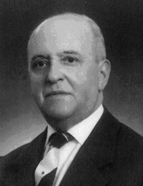

Of bourgeois origin and the son of Professor Raul Dória, the author completed a general commerce course at his father’s professional school in 1919, at the age of 16, and began teaching at the institution the following year. He later worked as a bookkeeper. In 1929, he married and settled in Braga, returning to technical and vocational education in 1938. The scholar cultivated a humanist profile, engaging in diverse areas such as accounting and its teaching, dictionary production, translation, and historical writing. In the latter field, he was self-taught, a common phenomenon at the time, often running parallel to university historiography, which was largely dominated by journalists and literati.
From an early age, Dória demonstrated a deep interest in researching and promoting national culture. He exhibited a bibliophilic passion and a flair for essay writing and erudition, remaining attentive to both contemporary issues and everyday life as well as historical events. His work sought to balance a narrative of events with methodological rigour and a restrained expression of opinion. The author began working in translation in the early 1930s, later contributing to Livraria Civilização’s historical sources collection and the Dicionário de História de Portugal [Dictionary of the History of Portugal], directed by Joel Serrão (notably the entry on "Afonso VI," 1963, pp. 44–46).
The historiographical work of this scholar can be divided into two main periods: the first spanning the 1940s to the 1970s and the second beginning in the late 1970s. During the earlier period, he focused on themes of modern history with political implications, adopting a chronological, narrative, and descriptive approach aligned with traditional analysis. In the second phase, his attention shifted to contemporary history and historiography, with Álvaro Dória emphasising cultural history. This later work displayed a more opinionated perspective, incorporating subtle yet effective problematisation. Since the 1940s, the author has demonstrated exegetical rigour in his critique of sources, identifying the dawn of overseas expansion as a golden age. In contrast, he regarded the period of Philippine domination as a decline, which he saw as having been decisively reversed by the Restoration.
This work is financed by national funds through FCT - Foundation for Science and Technology, I.P, in the scope of the projects UIDB/04311/2020 and UIDP/04311/2020.
